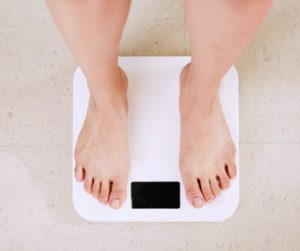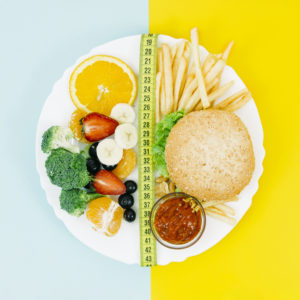
Why you will have (so) hard to lose weight
With the help of our Anonymous Test you are guaranteed to find out how losing weight works for you!
With slimming is that such a thing: The offer and the selection of completely different parliamentary allowance, numerous Pulverchen and each quantity of meal spare products are nowadays simply enormous. At the same time there is a considerable number of humans, who lose weight despite all attempts, usually only minimum - or it comes so far that they do not decrease at all, but in individual cases even still increase. Many of them have simply already given up resignedly - understandably so. Most feel tormented and frustrated. But one thing is clear: Anyone can lose weight!
You can find out the reasons for the lack of success
We sat down together and thought about the best way to really help people lose weight. Therefore, we conducted an anonymous survey among those people who find it difficult or impossible to lose weight - despite one or more diets. The answers given by people to our questions showed us what the reason is that it does not work.
We took all the answers, analyzed them and thoroughly evaluated what slowed down weight loss in each case. Based on these evaluations, we have created this guide that clearly shows you what is preventing you from losing weight. We discuss the individual reasons point by point. Just look up which of these main reasons apply to you - and which points you have to avoid in the end in order to lose weight.
Because:One thing is certain in any case - everyone can lose weight. Even if you have perhaps already lost your courage or motivation. Really everyone can lose weight healthily and in the long term. Building up body weight and losing body weight is a completely natural function of your body's organism, which is basically present in every living being.
Without the processes behind them, we could not survive. 24 hours a day, our body has to produce heat to maintain our body temperature. If we lack the necessary energy to do so, or if there is not enough energy for movement, it has to use the available reserves.
You must be aware that losing weight is a natural process that works for everyone! Yes, also with you.
The only requirement is that you remove the obstacles that hinder these processes. We will now discuss exactly what these are step by step in each of the following points.
You must pay attention to the following 9 points:
1. The motivation
 The very first question we asked our survey participants was: Why do you want to lose weight?.
The very first question we asked our survey participants was: Why do you want to lose weight?.
All the answers we received to this question were naturally diverse and could not have been more different. Some want to lose weight simply to look "better". Others, on the other hand, are already clearly aware of the health limitations of their excessive weight. And against it they want to finally tackle and get rid of the superfluous kilos. Others have set themselves a certain desired size or weight as their goal because they simply consider it desirable for some unknown reason.
The right motivation is one of the most important points in losing weight. Losing weight purposefully and consciously is always uncomfortable and unpleasant.This is in the nature of things. You must remember one thing: all your body understands in these moments is: "There is not enough". Without some form of deficiency, the body sees no reason to reduce the fat deposits again or to attack them at all. How strongly we feel this lack, depends also to a large extent on the method with which we lose weight - and how drastic we personally feel these changes.
Only real motivation makes less pleasant things bearable
We will have to endure these unpleasant sensations if we want to lose weight. This is part of it and with the right mindset you will be able to do it. So say goodbye to the thought of losing weight and at the same time cheerfully shovel food into your body. This will not bring you anything and will not work. Make this clear to yourself once and for for all. And whoever suggests to you that this is possible does not offer you a method of losing weight, but only an excuse. . It will not work.
What helps you to survive and endure these unpleasant sensations is your motivation.You must have good and strong reasons why you want to do this. Reasons that you believe in yourself steadfastly. Just wanting to impress someone, or simply copying or trumping someone's physique, are not very strong reasons, even a vague "somehow better looking" is not enough as a reason. You are not this or that internet model - you are you. And you don't have to trump anybody. We are all worth the same as people.
Reasons should always have to do with yourself - and not with other people. It is about you and your life, so find reasons that are important to yourself and that you consider important to yourself. Set yourself clear goals, goals that are worth doing something about or that are worth enduring uncomfortable situations.
You are solely responsible for achieving these goals: not your environment, not a new Instagram trend and not the diet method. The responsibility for achieving your goals is entirely yours.
This is where it all begins.
2. Note your initial weight
 In our second question we wanted to know from the participants how much they actually weigh. This is very important, because depending on the initial weight, the situation when losing weight is always very different.
In our second question we wanted to know from the participants how much they actually weigh. This is very important, because depending on the initial weight, the situation when losing weight is always very different.
It makes a difference whether you weigh 170 kg and finally want to go through life with a healthy body weight, or whether you want to lose only another 10 kg at almost normal weight to fit into the next smaller size or into some current beauty craze. Both are completely different situations.
The whole thing is often complicated by the fact that nobody tells you exactly how much you should weigh.Body Mass Index and normal weight calculations only give rough ranges in which a weight is somehow medically justifiable. This varies greatly from person to person, depending on age and physique. Just as an example - at the BMI most successful bodybuilders have catastrophic values in the area of overweight and this although they have the body fat percentage of a half starved person.
If you have a very high overweight (BMI values over 30), your weight has usually increased over a very long period of time. This means that there is often a large number of unhealthy eating and living habits that you have been following for a long time and that need to be changed. These are major changes that usually also change many other things in your life. This takes time.
Extremes rarely or never work
It is also about realistic goals. "10 kg in 2 weeks" are goals that are so completely nonsensical because the body first has to adapt to the entire new nutritional situation, adapt physical processes accordingly and find solutions for any problems that may arise. With such high body weights, only a slow, continuous weight loss works in the long run - you have to put your diet on a healthier basis and then you can watch your weight disappear.
Your body is not a machine where you press a button and it does what you want. It is a very complex system of many individual processes that work together. YOU are your body. If you do brute force to yourself, usually nothing gets better. By the way, if you are on a zero diet, you gain a lot of weight, but only so much more.
If you aim for a weight of 60 kg at 1.75, you may find that you like the number and the weight, but your body may not. In this case, your body may then take every opportunity to correct the weight to a value that makes sense to it.
Then you will constantly struggle with your "desired weight" because it is not a realizable goal. Something your fantasy can live with, but your body cannot. And that's what it's all about. Delusional values are not true values. Both problems have one thing in common: they result from not listening to your body when it comes to health. Some arbitrarily agreed or advertising-technically strongly exaggerated numerical values are used as "goals", which are however without any meaningful basis.
Theoretically, you can starve to death as quickly as possible, but in practice this works rather poorly.
If you work against your body and its natural processes, you are working against yourself - and against the success of your purchase.
Leave that alone.
3. The number of your meals per day
 We also asked the participants about this. Some of them estimated quite high values (about 5 - 6 times), many of them could not even say this exactly. In today's western world, eating habits have changed a lot: we have adopted a "snack pattern" in which we eat practically all the time.
We also asked the participants about this. Some of them estimated quite high values (about 5 - 6 times), many of them could not even say this exactly. In today's western world, eating habits have changed a lot: we have adopted a "snack pattern" in which we eat practically all the time.
This is of course anything but healthy, besides our weight it also damages our body enormously. In earlier times, farmers had 5 meals a day, citizens usually had 3.
Whereby these meals were often not very sumptuous, much of it we would call "snack" today - and simply eat it on the side. Also with the number of meals, we are usually far from this frequency today.
This leads to two problems: on the one hand, the quantity of what we eat during the day is hardly manageable and the calories often accumulate significantly "so incidentally". On the other hand, we also make it difficult for our body. It basically needs the time to digest food and then our digestive system needs time to thoroughly dispose of the leftovers.
If this time is no longer available, the system will eventually be overwhelmed. If it is constantly occupied only with the digestion of newly incoming food, it will at some point no longer be able to keep up. Out of pure stress, things are then simply put directly into storage, because there is no time to use them. This is exactly where you don't really want your food, on your stomach and around your hips.
In addition, we often miss out on important nutrients, get digestive problems from time to time and, above all, make a habit of eating all the time.
This habit already makes us nervous if we don't get anything for two hours, even if we are not hungry. This is when the disaster takes its course and it requires discipline to stop eating all the time or to "reward" us with snacks.
Even if feelings of hunger make you panic, you will not die of hunger. You can go without solid food for up to two months, so a few hours are no problem. They are only unpleasant, but we can't always remove all the unpleasant things in our lives right away. We go to work, even if we don't like it very much.
Many Buddhist monks only eat once a day. None of them look starved - so this seems to work without any problems. They don't know the feeling of hunger in the time in between, the body adjusts itself quickly if the food comes regularly.
A clearer head is supposed to make this also.
4. You should pay attention to your weekly balance
 We asked our participants to write down what they eat during the week. The answers were - at least for us - already very enlightening.
We asked our participants to write down what they eat during the week. The answers were - at least for us - already very enlightening.
Over the course of a day there is usually no really clear picture of what we eat. A few "little things", which are perhaps not so healthy, add up to considerable amounts over the course of a week. In addition, over a period of 7 days you get a much better feeling for how much meat, bread, vegetables and finished products you actually eat.
A "healthy" day over a week does not make much difference in relation to the total amount. And three portions of vegetables are not exactly opulent with a total of 21 meals.
So a weekly balance sheet exposes our popular self-deception well, so you should definitely do that - and be honest about it. It usually shows you exactly where your "weak points" lie.
In addition, many of our body's nutrient stores last for about 7 - 10 days, so within this period we should have taken in the most important nutrients through food and replenished our stores. If we do not succeed in doing this, there is a risk of nutrient deficiency (this is very common, especially among overweight people).
Writing or tracking your food on a weekly basis also helps you to take stock at the end of the week: What did I eat too much of, what did I eat too little of? What things did I fall for again this week? In which situations do I regularly eat too much? How has my weight developed with these food quantities/food, what "works"?
Weekly balance sheets often contain valuable information - and you should not close your mind to it.
The marginal factors in slimming
The remaining five questions are aimed particularly at the "marginal factors", which play a major role in determining whether or not you succeed in losing weight. We will pass on these questions to you in exactly the same way as we have asked them to our participants. You can answer them for yourself and draw your own conclusions.
5. What is one of your absolute favorite foods?
 We asked our participants that too. The question sounds strange at first, in fact the favorite food reveals a lot about individual eating habits.
We asked our participants that too. The question sounds strange at first, in fact the favorite food reveals a lot about individual eating habits.
Even the weekly evaluations have shown that most people tend to eat the same thing over and over again very often. There is actually not so much wrong with this, not only is this quite common, but it also makes it easier for the body to adjust to what usually comes in and to optimize the necessary processes for digestion.
It is only problematic if the food as a whole is very one-sided and important nutrients are missing. This is where the principle "Improve your habits and you improve your life" comes into its own: if you simply make what you usually eat a little healthier bit by bit, the amount of willpower required to persevere is usually much less than if you just want to eat vegetables overnight.
Many dishes can actually be "upgraded" in a healthier way, you can do this step by step. In addition, the quantities can be reduced optimally in small steps over a longer period of time. In this way, you do not break with your cherished habits at one go (unless they are too harmful), but change them bit by bit into better ones. Most of the time this works quite well if you consistently incorporate improvements.
6. How great is your ambition?
 Another strange question we asked our participants - but it is also important, also for losing weight. How you deal with the goals you set yourself, and whether you have any at all, plays a very important role in how well you progress in life and with your desired goals.
Another strange question we asked our participants - but it is also important, also for losing weight. How you deal with the goals you set yourself, and whether you have any at all, plays a very important role in how well you progress in life and with your desired goals.
Those who are very lax with their goals and often shrug their shoulders and don't take their goals very seriously, but always wait for everything that is desired to happen somehow, will often have problems losing weight.
The antithesis to this are people who set themselves a clear goal, a reasonable timeframe, and and do something every day to achieve their goal - right now.. This requires a bit of power, a little discipline and a lot of clarity about what goals you want to achieve and why you want to achieve them. To do something right now means in many cases to lose weight right now, when you are confronted with your goal. Power, discipline and above all clarity are the three essential ingredients for success - not only when losing weight.
See for yourself which of the two sides you'd rather fit in on - and whether you can't just become a little more "power-human" if necessary. There are a number of aids for this, too, which are not always all about losing weight, but generally help to develop goals and pursue them consistently. A little more "Achieving-Power" does not harm us all.
7. Are your parents overweight or ideal and they pay attention to their diet?
 This is indeed a very important question. That is why we asked it to our participants. A lot of things in our lives are controlled by unconscious habits that we acquire in early childhood by simply copying the adults around us. In most cases, we retain such habits throughout our lives.
This is indeed a very important question. That is why we asked it to our participants. A lot of things in our lives are controlled by unconscious habits that we acquire in early childhood by simply copying the adults around us. In most cases, we retain such habits throughout our lives.
For parents who have always struggled with their weight or paid little attention to healthy eating, the chance is very high that you have simply subconsciously adopted many of these unhealthy and dysfunctional eating habits, preferences and attitudes towards food.
Of course, nothing is ever set in stone - we can also change long-held habits, mistakes or unhealthy attitudes. To do this, however, they must make us fully aware of them and put them to the test. We always tend to see everything as "great" and "indispensable" that we have eaten since our earliest childhood. But that doesn't necessarily have to be true, that's just our impression of it, because we associate it with "home" and "security" or simply as a habit that is difficult to change and is inseparable from us.
Changing such things (for example eating 4 times a day) often takes a lot of work and takes a long time, but is worth the effort. It is not decisive whether something "feels good" or whether we have always done it this way - what is decisive is only what makes sense and makes sense here and now - and this according to rational standards. Unreasonable and unhealthy things do not get better just because you keep them for 60 years.
That one can change nearly everything shows humans, who grew up with nearly exclusively animal products and today nevertheless convinced Veganer are. As said, nothing is chiseled in stone. You can always make it reasonable.
8. What do you actually think about fasting?
 This question is directly aimed at how well you can deal with renunciation. If fasting is a frightening, life-threatening idea for you, most likely not very well. If you at least find it exciting and would like to try it (if you don't already have it anyway), it is much better.
This question is directly aimed at how well you can deal with renunciation. If fasting is a frightening, life-threatening idea for you, most likely not very well. If you at least find it exciting and would like to try it (if you don't already have it anyway), it is much better.
And if you mean shrugging your shoulders, that's something that can be done, it would of course be quite good. . Here it is less about fasting itself, which in its original form is only quite badly suited for losing weight anyway, but more about the attitude towards it. It is about how well you think you can part with food. . As mentioned before, you can physically survive up to 2 months without solid food without any problems.
The only reason why we cannot or do not want to do without food from time to time are emotional reasons.. Hunger is unpleasant (this is its biological purpose), but for some people it is also almost unbearable if they do not always get what they (impulsively) think they want immediately. For others, food is the "solvent" for all negative feelings: sadness, boredom, fear, frustration, anger and whatever other unpleasant things happen to them.
If you find it very difficult to deal with it, if you cannot have the food you want immediately or are not allowed to have it for a while, or if you like to raid your fridge as a problem solution or like to "treat yourself" quickly in emotionally challenging times, then this is a psychological problem.
It has absolutely nothing to do with your body. You can only solve these things on the psychological level, on the physical level it doesn't help.
Food is only there to keep the body functioning. It is not a suitable means to regulate any emotions. It is not meant for that..
9. Imagine you were at a barbecue... what would you do?
 This question is about stamina.The question aims to make you realize how well you can stand by your goals, attitudes and values - even if others act differently. How much you allow yourself to be distracted.
This question is about stamina.The question aims to make you realize how well you can stand by your goals, attitudes and values - even if others act differently. How much you allow yourself to be distracted.
If you cannot stand behind what you want to achieve for yourself when others do something else or do not understand what you are doing, your backbone is weak. You have to work on that. Standing by your decisions and seeing them through is your sole responsibility.
If you feel coerced or forced, mocked or belittled to do what your friends do and "join in" in such events - you have the wrong friends.
They will stand behind you for nothing else in life. Whoever tries to force you to do something or to dissuade you from doing something is not a friend - but only someone who tries to control your life in all parts.
(Especially inwardly weak people like to do this because it makes them feel stronger themselves).
Nobody else than yourself has the right to decide about your life - you are also responsible for what comes out in the end. So only you can decide for yourself, the rest has to respect that. (Think how many of your "friends" would put up with this the other way round if you try to force them not to eat).
Closing words
These 9 points cover the most essential areas that turn out to be obstacles to removal. Most of them have nothing to do with your body - but with your habits, your attitudes and your personal well-being. If you notice that you are having difficulty losing weight or following a diet, take a close look at these 9 points again and see what the problem might be.
We did not ask our participants these questions for nothing. They are important - and so are the answers.
Remember: Anyone can lose weight - this is a completely normal, physical process that runs by itself anyway. If we create the conditions for it and remove the obstacles that stand in the way of losing weight.

Wir möchten dir das beste Benutzererlebnis bieten und arbeiten hart und viel an unseren Quiz. Beantworte die Fragen wahrheitsgemäß, damit wir dir das beste Ergebnis liefern können.





















